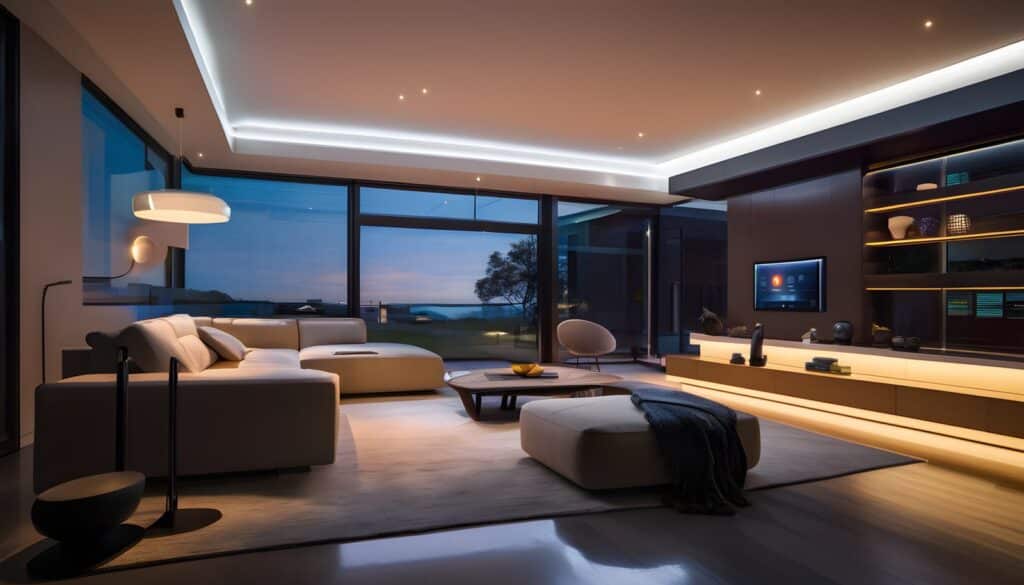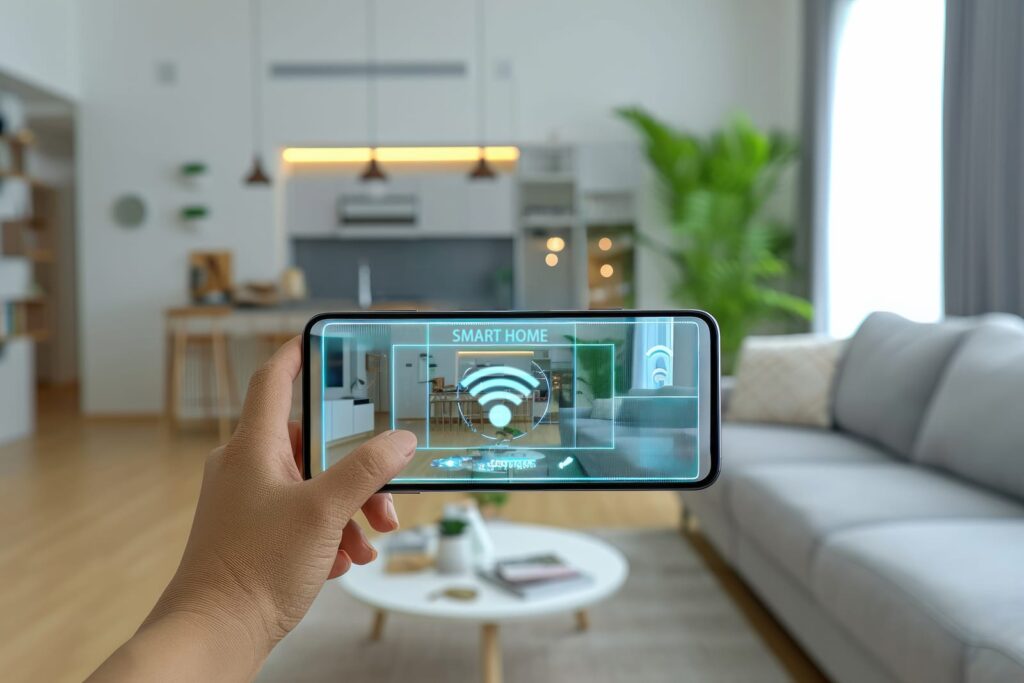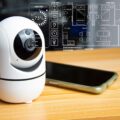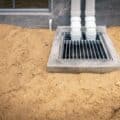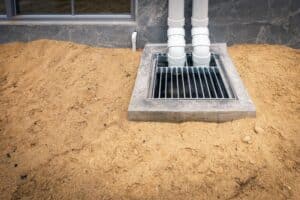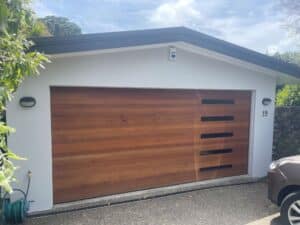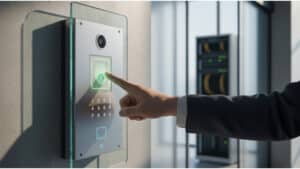Connected smart home system technology continues to reshape how people interact with their living spaces in Palmerston North and across New Zealand. These integrated systems combine various household functions into unified platforms that automatically respond to occupants’ needs. Understanding the practical advantages helps homeowners make informed decisions about incorporating this technology into their properties.
Primary Advantages
Modern smart home automation delivers measurable improvements in several areas:
Cost Reduction Through Intelligent Energy Use – Automated systems regulate power consumption by coordinating lighting, climate control, and appliances based on actual occupancy patterns rather than fixed schedules.
Personalised Living Environments – Customisable settings adjust automatically throughout the day, creating atmospheres suited to different activities without manual intervention.
Advanced Protection Systems – Real-time monitoring with instant notifications enables property owners to respond quickly to potential security concerns from any location.
Enhanced Market Position – Properties equipped with automation infrastructure appeal to tech-conscious buyers seeking move-in-ready solutions.
Renewable Energy Coordination – Integration with solar installations and electric vehicle charging optimises power distribution and storage.
Flexible Implementation – Modular designs allow gradual expansion, starting with basic functions and adding capabilities as requirements evolve.
Proactive Safety Features – Environmental sensors detect hazards such as smoke, water leaks, and poor air quality before they escalate.
Location-Independent Management – Mobile access enables property oversight whether owners are across town or overseas.
Streamlined Daily Operations – Routine tasks execute automatically, eliminating repetitive manual adjustments throughout the day.
Long-Term Viability – Systems adapt to emerging technologies without requiring complete replacement.
Reducing Energy Expenditure
Household energy costs represent a significant ongoing expense for New Zealand families. Automation addresses this by eliminating waste through coordinated control of major power consumers.
Lighting systems automatically deactivate in unoccupied spaces. Climate control learns what the property’s occupancy patterns are and adjusts the heating or cooling accordingly, maintaining comfort while avoiding any unnecessary operation. The system develops an understanding of usage patterns over time, enabling more precise adjustments than manual operation allows.
Built-in monitoring reveals which areas consume the most power, highlighting opportunities for efficiency improvements. Property owners often find that these savings accumulate faster than anticipated.
The technology proves particularly valuable for intermittently occupied properties, such as rental accommodation or holiday homes, where remote climate control prevents unnecessary heating of empty buildings.
Daily convenience represents one of the most immediately noticeable benefits. Rather than operating multiple separate controls, residents interact with a unified system that understands their preferences and responds appropriately.
Programmable routines ensure environments are prepared when needed. Lighting might gradually increase before wake-up time, heating can warm living areas before arriving home, or entertainment systems can activate for scheduled activities. Voice commands provide hands-free operation, particularly useful when multitasking.
As usage patterns stabilise, the system creates personalised scenarios reflecting residents’ lifestyles. Even subtle adjustments, like evening dimming or automatic pathway illumination at dusk, enhance everyday comfort.
Strengthening Security Measures
Security concerns drive many initial inquiries about smart home systems. Real-time visibility into property status provides assurance that traditional alarm systems cannot match.
Cameras, electronic locks, and motion detection integrate seamlessly. Unusual activity triggers immediate mobile alerts, enabling swift responses. Smart locks allow remote verification of secure status, remote locking, or generation of temporary access codes for visitors or service providers. These combined capabilities create comprehensive oversight even during extended absences.
For households managing multiple properties or frequently travelling, reliable and accessible security systems provide invaluable peace of mind.
Boosting Property Appeal
Automation features increasingly influence buyer decisions in competitive markets. Properties with existing integrated systems stand out to prospective purchasers seeking modern, ready-to-use solutions.
Buyers value pre-installed lighting, climate control, security, and energy management because they eliminate post-purchase installation. New constructions incorporating smart infrastructure signal forward-thinking design and contemporary standards. Even modest additions like connected lighting or security cameras differentiate listings.
Coordinating Renewable Systems
As solar power, battery storage, and electric vehicles gain adoption throughout New Zealand, automation platforms play a crucial role in coordinating energy flow. Integration ensures complementary operation rather than isolated function.
Platforms manage solar energy utilisation, appliance operation timing, and stored power allocation. This reduces grid dependence while maximising returns on renewable investments. For electric vehicle owners, systems schedule charging during off-peak periods or peak solar generation, preventing demand spikes while maintaining grid balance.
This coordination delivers both financial savings and environmental benefits, improving overall household sustainability.
Tailored Solutions
Every property has unique requirements, and effective automation reflects those requirements rather than generic templates. Customisation represents a significant advantage.
Implementation can begin modestly with single functions, such as lighting or climate control, then expand as needs develop. Modular architecture prevents lock-in to extensive initial installations. New products integrate without system-wide replacement as technology advances.
This adaptability ensures continued relevance over extended periods. Whether upgrading individual rooms, renovating entire homes, or managing commercial spaces, automation evolves at appropriate paces.
Enhancing Safety Standards
Safety benefits often receive less attention than other features, yet modern systems provide substantial additional protection beyond basic smoke detection.
Intelligent smoke and carbon monoxide detectors send immediate alerts regardless of occupant location. Water leak sensors identify problems early, preventing extensive damage. Enhanced lighting improves visibility, reducing accident risk in the dark, while environmental monitors monitor air quality, humidity, and temperature to maintain healthier indoor conditions.
These combined sensors and real-time notifications support families, elderly residents, and anyone seeking additional home safety assurance.
Managing Properties Remotely
Remote access consistently ranks among the most appreciated features. Checking status, adjusting settings, or viewing security footage from anywhere adds substantial convenience and control.
Whether deactivating forgotten appliances, modifying climate settings during trips, or verifying security, automation enables quick mobile access. This is especially useful for owners managing multiple properties, such as rentals or holiday homes, and for businesses overseeing offices or commercial premises.
Centralised management reduces uncertainty associated with property absence.
Simplifying Routines
Automation saves time by handling minor tasks that otherwise require attention throughout the day. Residents no longer need to walk through rooms manually adjusting lights, temperatures, locks, or entertainment setups.
Automated routines create a smoother household flow. Lighting, appliances, and security operate on schedules matching daily patterns. This consistency frees time and attention for higher priorities. Busy families find mornings and evenings considerably easier, while businesses maintain operational consistency without additional oversight.
Future-Proofing Investments
Adopting smart home system automation extends beyond immediate convenience, it prepares properties for ongoing technological evolution. Systems maintain compatibility with emerging devices and evolving standards.
As innovation continues advancing, integrated systems enable property adaptation without extensive rewiring or costly replacements. This makes investments more sustainable and cost-effective long-term.
Trends indicate increasing integration between energy management, security, renewable power, and lifestyle automation. Current adoption positions properties to capitalise on these developments.
Conclusion
Smart home systems deliver substantial benefits extending well beyond simple convenience. These systems create efficient, secure, comfortable environments that adapt to residents’ evolving needs. From reducing operational costs and improving safety to enhancing daily comfort and adding long-term property value, the advantages touch every aspect of modern living.
For New Zealand homeowners considering these technologies, professional guidance ensures solutions align with specific requirements and grow alongside changing needs.

